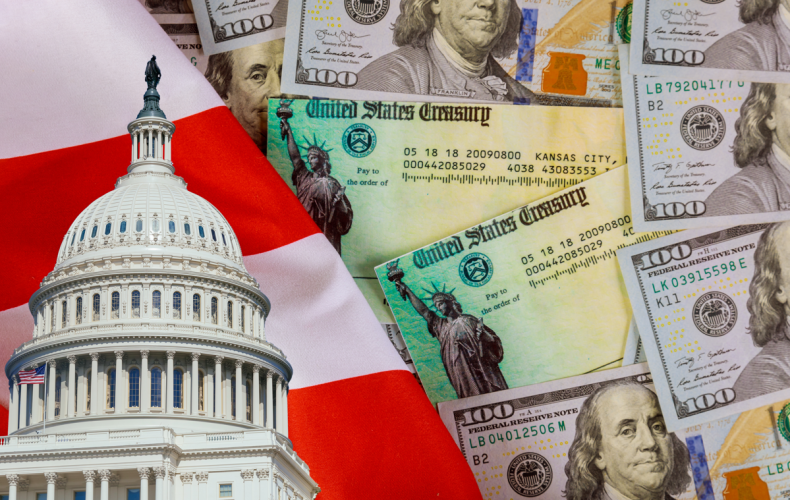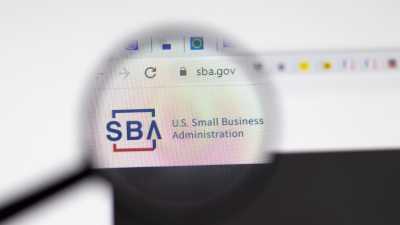The Covid-19 Relief Fund Will be Reduced by $2 Billion for Small Businesses
in Business by Mitch Alborn

The Biden administration requested additional funding from Congress several weeks ago, stating that monies are required to continue battling Covid-19. However, lawmakers have divided on how to fund the proposal. Senate Republicans have insisted that any extra spending be completely offset by repurposing funds from prior Covid-19 relief measures enacted by Congress.
A bipartisan agreement reached earlier this month in the Senate would completely offset the $10 billion legislation by reallocating a variety of Covid-19 relief money already authorized by Congress but not yet disbursed.
The majority of the unspent monies came from initiatives that had previously ended. However, the agreement also recommends withdrawing nearly $2 billion from a $10 billion small business program that has yet to award funding.
"There is a tremendous distinction between money that hasn't been spent and funds that haven't been deployed," said Katie Kramer, vice president of the Council of Development Finance Agencies, a national organization committed to economic development.
The program in question, known as the State Small Company Credit Initiative, offers funds to states to assist in the development of small business lending programs. It is a long-term aid program designed to assist small firms in gaining access to capital while the economy recovers, rather than giving immediate grants and loans like other Covid-19 aid programs do.
The fear of funding cuts puts state plans on hold.
After months of strategizing how to effectively spend the funds, the fear of a reduction has placed governments' plans on hold.
Oregon, like many other states, was prepared to begin a number of small business lending initiatives as soon as it received funding from the Treasury Department. If the finances are removed, there may be significant delays.
"What's disappointing for us is that we've been working with communities for months, informing them that these resources are on their way," said John Saris, finance manager for Business Oregon, the state's economic development agency.
He expected Oregon to get more than $83 million, which would be enough to reach 1,000 firms. However, if Congress withdraws part of the funds, the state's resources might be reduced by up to $20 million, leaving it with only enough funds to assist 700 small enterprises.
"We will have to completely rethink our strategy as a result of these cuts. Because of the severity of the situation, certain programs may be eliminated entirely "Saris said.
The State Small Business Credit Initiative enables governments to develop a range of funding schemes for small companies and startups affected by the epidemic, including venture capital programs and loan guarantees to lenders.
Governments are obligated to match part of the federal funding with private capital, and Treasury anticipates that the programs will create at least ten times the government contribution amount in small company loans and investments.
According to the Council of Development Finance Agencies, a $2 billion drop in federal financing for the State Small Business Credit Initiative may result in a $20 billion reduction in private investment for small firms.
States are still waiting for funds.
The State Small Business Credit Initiative was established in 2010 to assist small companies in their recovery from the Great Recession. The American Rescue Plan Act, signed into law in March 2021 by President Joe Biden, reauthorized the program and granted $10 billion in fresh funds.
States were obliged to submit applications to the Treasury Department in February, and tribal governments had until May 11 to do so. However, no applications have been granted, and no funds have been given by Treasury.
According to a Treasury official, the agency's implementation of the State Small Business Credit Initiative "has been consistent with the statute and has included outreach, input, and engagement with states, tribes, lenders, small businesses, and experts, as well as technical assistance to ensure programs are set up to effectively deploy these funds."
According to the source, Congress added several new features to the program that were not included in 2010, such as funds for tribal governments and socially and economically disadvantaged company owners, as well as a new technical support program.
Bill is still in limbo.
After weeks of wrangling on the Covid-19 relief bill, senators adjourned for a two-week break without voting on it. The newest stumbling block arose when Republicans wanted a vote on an immigration amendment to reinstate Title 42, a pandemic-era provision that permitted immigrants to be repatriated to their home countries immediately if a public health emergency was declared.
In addition to the money it would take back from the State Small Business Credit Initiative, the plan proposes repurposing three buckets of previously approved Covid-19 relief payments to pay for the extra health expenditures.
The measure would spend roughly $2 billion from the Shuttered Venues Operators Grant program, which provided funds to live music venues, theaters, and museums that were forced to close their doors for an extended period of time due to the epidemic. In August, the program ceased accepting applicants. It gave out almost $14 billion in grants.
The plan would also repurpose almost $900 million left over from the Covid-19 Economic Injury Disaster Loan Advance Program, which enabled some small companies to get up to $15,000 without having to repay it. According to a description of the plan supplied by Senate Democrats, the program would be left with enough money to meet pending loan modifications and the newly announced six-month loan payment deferral.
The Aviation Manufacturing Jobs Protection Program, which gave money to enterprises to cover up to half of their payroll expenses for certain types of employees for up to six months, would contribute more than $2.3 billion. In exchange, those companies were obliged to make various pledges, including avoiding involuntarily furloughing or laying off employees in that category within the same six-month period.
The plan would also use $500 million in unspent funds from the Higher Education Emergency Relief Fund. This initiative offered cash to institutions in order for them to provide emergency financial assistance awards to students whose lives had been interrupted by the epidemic. Another $1.6 billion in unspent monies from the US Department of Agriculture would also be repurposed.
After legislators return from break next week, Congress might take up the new Covid-19 relief legislation. Spokespeople for Senate Majority Leader Chuck Schumer and Republican Sen. Mitt Romney of Utah, who was negotiating the financing agreement for Republicans, did not respond to CNN's request for comment on this story.




